 Nobody wants to have a food allergy or gluten intolerance and have to eliminate something from their diet. But what I find interesting is the reaction that people have if it is suggested that their or their children’s health problems (like rashes, eczema, asthma, stomachaches, gas, colic, reflux, headaches — the list goes on) or behavioral/developmental problems in kids (clinginess, tantrums, excessive, crying, delayed speech, attention deficit disorder, and more) or emotional/psychological problems in adults (depression, anxiety, obsessive-compulsiveness, addiction) could be due to a food sensitivity.
Nobody wants to have a food allergy or gluten intolerance and have to eliminate something from their diet. But what I find interesting is the reaction that people have if it is suggested that their or their children’s health problems (like rashes, eczema, asthma, stomachaches, gas, colic, reflux, headaches — the list goes on) or behavioral/developmental problems in kids (clinginess, tantrums, excessive, crying, delayed speech, attention deficit disorder, and more) or emotional/psychological problems in adults (depression, anxiety, obsessive-compulsiveness, addiction) could be due to a food sensitivity.
I have observed people having the following three types of reactions:
Reaction #1: “No way, not me”
For most people, believing that food could cause the above symptoms is difficult. Why is it so hard to believe that what we put into our bodies could actually affect our whole bodies, including our brains (last time I checked, this was part of the body)? Food is our nourishment — we need it to survive — so surely it can’t be harmful. I have heard people argue, “but food is natural.” OK, I say, but some mushrooms are poisonous — go ahead, I dare ya!
Sometimes a person tells me about a problem and how it is affecting his/her life or the life of the child. When I gently suggest gluten intolerance or food allergy, suddenly the problem is “not that bad.” Let’s see, so the problem is bad enough to go
to a doctor, it’s bad enough to take medicine for it, it’s bad enough to see a specialist, it’s bad enough to make someone miserable, but it can’t be bad enough to have to change one’s diet… that would be AWFUL!
When I have suggested to someone that they might be gluten intolerant, I have heard the no-way-not-me variation of “Well, I don’t really eat that much wheat anyway.” I challenge anyone to see if they are not eating wheat at least 3 times a day, including snacks. People eat so much wheat! And dairy! And now soy because it’s in everything. Most people are simply not aware of what they are eating. Before I was diagnosed with celiac disease and had to begin to carefully read labels, I thought I ate a very healthy diet. I now realize that I didn’t really know what I was buying or eating.
Some no-way-not-me people do come around after a while and begin to have Reaction #2 below. Many do not (and continue to be miserable).
Reaction #2: “Hmm… I’ll think about that.”
These people know that something is not right and once food allergy is suggested, they are open to considering it as a cause. They may sit with it a while, observe, talk about it some more, read about it, and/or plan it out, and then they may get testing done or do their own elimination diet. However they approach it, sometimes a change is made and ultimately, hopefully, an answer is found. Most people with the I’ll-think-about-it type of reaction feel that changing the diet is a sacrifice that they are willing to make for their own, or their children’s, health.
I’ll-think-about-it people often end up having Reaction #3 below, although some waffle between Reactions #1 and #3.
Reaction #3: “I’ll do it!”
I am always surprised by the people who are willing right away to try eliminating something from their diet. They just do it. They don’t make a big deal about it, they don’t stress over it, they just do it. I don’t know why I am surprised, since I was one of those people. Once I knew that celiac disease and gluten existed (from reading about it on the web), I began eating gluten-free that very minute. When my doctor told me not to go gluten-free until I took a blood test (because it could affect the test results), I cried. I didn’t want to eat gluten ever again!
Still, I am impressed by the mother who stops eating dairy while breastfeeding to see if her infant becomes less colicky, the guy who stops eating gluten to see if his eczema goes away, the mother who stops feeding her baby gluten and dairy in hopes that it will help with seizures, and the many others who removed something from their diet in an attempt to feel better. They decided it was worth a try — if it worked, then hooray! If it didn’t, they were no worse off than before.
Why these reactions?
I have wondered, does the severity of the problem determine a person’s reaction? In my experience, not necessarily. Yes, some people with very serious health problems may be more willing to try a change in diet because they haven’t found answers elsewhere. But I know parents with sick children — and I mean very sick — and people who are suffering with undiagnosed health problems who will not try a gluten-free diet, will not try eliminating dairy, will not make any dietary change to see if it makes a difference.
What drives these reactions, I think, is whether one believes or not. This is also true of doctors — if they themselves don’t believe that food can cause ill health, then they don’t suggest it to patients, and in many cases make patients feel silly (stupid) for asking about it.
So what’s your reaction?

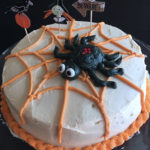
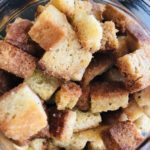
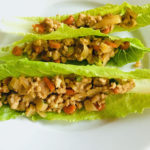
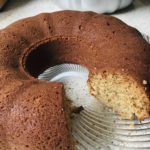
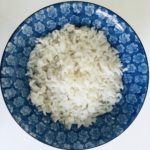
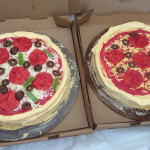
Amitayu Das says
Thanks Alison. When my daughter’s poor health was undiagnosed, I stumbled upon gluten intolerance on the internet. I can only thank God for that as in India people are unaware of this disease.
I spent lot of my resources for the diagnosis of my daughter and took her to the best medical facilities avail here. Doctors were only treating her symptoms but could not find the root cause of the problem.
She is on a gluten free diet . I do not want any more tests on her. She is improving gradually.
What you wrote makes me more confident that I was right to go for gluten free from the first day I knew about this disease.
I will not give her gluten even for testing.
Thanks once again. I would like to know about you.
Amitayu Das
Mike Andrews says
All the above!
alison says
Amitayu,
One thing I think is really important is to trust your instinct if you think that something is wrong with your child. Tests can be inconclusive, doctors can say nothing is wrong, but if you think something is not right, then it probably isn’t. I do believe that a lot of issues people have today are underlying food sensitivities, undetectable by our current methods of testing. Sometimes the best way (the only way) to see if a food is the cause of problems, is to eliminate it and see if the person gets better. In many cases, it can be more than one food, so you have to be the detective! Please email me with any questions you have: alison@surefoodsliving.com. Good luck and please let me know how it goes.
Alison
Janice says
I also think it is strange how people react to changing their diets. I was probably a 2.5 on your scale. I was diagnosed 11/06 by biopsy. When I woke up the Dr. said you have Celiac, I’m certain. But I took a biospy (blah blah). I said great (still in a hazy fog), when he explained that meant I was ‘allergic’ to wheat, I said “Great” and went home to a big fat cheese quesadilla. And, while eating it did the research online. And that was it for me. A week later the doctor told me no dairy also. I was certain he was trying to kill me. Now, when I have lunch with friends, it shocks them completely that I don’t ‘fudge’ it and ‘cheat’. I tell them nothing tastes good enough to make me feel that bad.
lyn says
I eliminated gluten from my diet completely the day I was told I needed to do it, and I never cheat. Because I have a medical background, I probably have a better understanding of what is and what is not “ok” than most people, and probably have fewer restrictions because of that. However, even after 5 years, a day does not go by that I don’t deeply resent those restrictions, and the way my life has been permanently changed. I cannot order freely in a restaurant without having a public discussion of my health needs with a total stranger (and even then my choices are very limited); I cannot go to a friend’s home for a meal without quizzing them as to how everything was prepared (and absolutely knowing that I have not only inconvenienced my host, but probably will have to decline something they went out of their way to make because they “missed” something on a label); and enjoying street food in foreign countries is essentially out of the question. Are there worse things? Of course. But that does not change the fact that a big piece of my freedom is gone forever. And what little research is being conducted is not really addressing a treatment or a cure because there is one–THE DIET!
alison says
Janice,
People I know are also so surprised that it is a 100% diet – no cheating! That’s because every other “diet” is a temporary one or says cheating is ok once in a while. And I totally agree with you — no piece of wheat is worth it!
Lyn,
I think people really don’t know that the way we have to live/eat is a constant discipline. Yes, it becomes more second nature and in our homes we get to think less about it, but eating out reminds us of that loss of freedom. Luckily things are getting better out there with restaurants, bakeries and people in general becoming more aware! Thanks for your comments!
Annie D. says
I have been diagnosed with non-Celiac gluten intolerance and a wheat allergy. Since I was 6 years old (I’m in my late 20’s), I have been so, so ill with chronic migraine headaches, and through the years have developed terrible IBS-like symptoms, chronic sinusitis, recurring bronchitis, tingling in my fingers, and recently, tremendous weight loss. I have been hospitalized twice for dehydration related with wheat illness. Since I have stopped eating wheat, gluten and dairy products, I have had no migraines, no abdominal symptoms, and virtually all my other immune symptoms have disappeared. Because I feel so much better and have had diet restrictions in the past for the migraines, I have had no problems at all sticking to the diet. Between my blood test and my biopsy, I had to start eating wheat again and it was torture. Now, it’s not a problem; I just think about how sick I used to feel and how well I feel now, and how I’m happy to be rid of my old illnesses, so I would never touch wheat or gluten (or dairy, until I can) again!
alison says
Annie,
Thanks for your story!! In fact, maybe your story should be in the Your Stories section… I will get in touch!
Alison